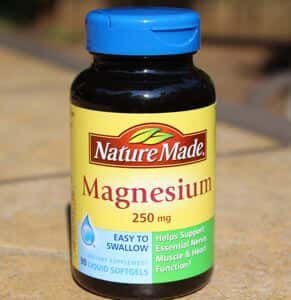
Keeping bones strong calls for life-long attention. During childhood and adolescence, bones increase in density and strength until early to mid-adulthood. To avoid broken bones in later years, we need to do what we can to bolster bone strength. That includes, importantly, weight-bearing exercise such as walking or running. It might also include supplements.
Could Supplements Prevent Broken Bones?
Q. I have osteoporosis and have read that magnesium helps the body absorb calcium. What kind of magnesium should I take and how much? Is it better to take it morning or evening?
A. A recent study found that older people who got more than 400 mg magnesium daily from their diets and supplements were less than half as likely to break a bone during eight years of follow-up than those who got only about 200 mg per day (Veronese et al, British Journal of Nutrition, online, June 20, 2017). Women who met the recommended daily intake of magnesium (320 mg) were 27 percent less likely to suffer a fracture due to osteoporosis.
What Magnesium Is Best?
Magnesium citrate appears to be best absorbed. If you have good kidney function, you should be able to take up to 300 mg daily without a problem. If your kidneys aren’t working well, DO NOT take magnesium supplements. Your kidneys won’t be able to get rid of any excess, and the mineral could build up to toxic levels (Alaini et al, BMJ Case Reports, March 21, 2017).
You can also get magnesium from green leafy vegetables, whole grains and nuts. That may help to explain why a diet rich in vegetables, nuts and whole grains helps prevent heart disease as well as broken bones. Magnesium is essential for cardiovascular health (Sakaguchi, Hamano & Isaka, Nutrients, Feb. 6, 2017).
It may not matter whether you take your supplement at night or in the morning. Taking it shortly before bedtime, however, might help you fall asleep (Abbasi et al, Journal of Research in Medical Science, Dec. 2012). (We wrote about that use of magnesium here.)
Reader Mary MF remarked:
I have been taking Slow Mag magnesium at bedtime with some warm milk and it has worked wonders in helping me to fall asleep quickly and get a good night’s rest. It was recommended to me by a pharmacist years ago to help prevent leg cramps so I’m getting two benefits from it. I take Citracal daily as my calcium supplement…. all of the above works well for me… so no sleeping pills in my medicine cabinet.

